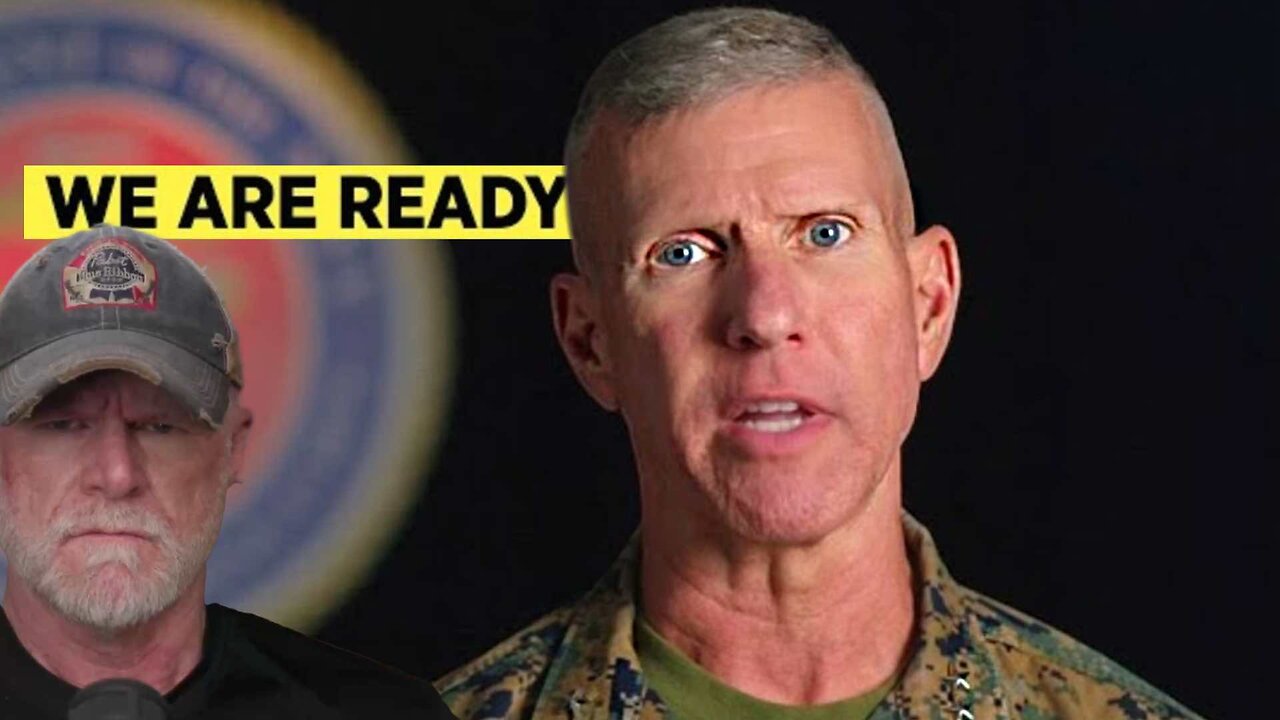Premium Only Content

Marine Corps Commandant TROLLS China then CLOWNS America by Accident
Visit http://americanfinancing.net/jamesons or call 866-336-5030 for details about credit costs and terms. NMLS 182334, http://nmlsconsumeraccess.org.
Full Video Used (think tank) - https://www.youtube.com/watch?v=E6tCN3hH1l4
US Navy Recruiting Office for ONLY CCP - https://www.youtube.com/watch?v=8iuI9xInEyk
General Smith’s comments about a potential war with China reveal his belief in the strategic and psychological advantages the U.S. holds in the modern military landscape. By contrasting the ways in which contemporary and historical conflicts are documented, Smith underscores the massive difference between today’s highly networked, information-rich combat environment and the more static, traditional methods of the past. His reference to U.S. combat being captured on an iPhone 14 is a nod to the ubiquity of real-time media, which not only facilitates immediate intelligence sharing and operational transparency but also influences global perception. In comparison, the Chinese military’s past combat, documented on "oil and canvas," evokes an older, slower, and less dynamic era of warfare, implying that the Chinese may lack the same level of agility and adaptability afforded by modern technology.
This contrast is more than just about how wars are documented; it reflects the broader capabilities of both nations in the realm of military preparedness and strategy. Smith suggests that the U.S., with its advanced technological tools and real-time battlefield feedback, has an edge in how quickly it can adapt to changing circumstances and make decisions based on the fluidity of modern warfare. By drawing attention to the value of "combat experience," Smith argues that the U.S. has honed its military skills through frequent and varied engagements, providing it with a level of tactical sophistication that might give it an advantage in a conflict with China. His comments reflect a belief in the superiority of modern warfare techniques, while subtly challenging any notion that older military traditions or strategies could match the speed and innovation of contemporary American military operations.
-
 15:55
15:55
Jamesons Travels
1 month ago $8.12 earnedConfronting Green Beret Jealous of Navy Seals
61.6K45 -
 2:53:01
2:53:01
Jewels Jones Live ®
1 day agoA MAGA-NIFICENT YEAR | A Political Rendezvous - Ep. 103
55.7K20 -
 29:54
29:54
Michael Franzese
8 hours agoCan Trump accomplish everything he promised? Piers Morgan Article Breakdown
77.6K45 -
 2:08:19
2:08:19
Tactical Advisor
12 hours agoThe Vault Room Podcast 006 | Farwell 2024 New Plans for 2025
159K11 -
 34:12
34:12
inspirePlay
1 day ago $4.66 earned🏆 The Grid Championship 2024 – Cass Meyer vs. Kelly Rudney | Epic Battle for Long Drive Glory!
65.6K8 -
 17:50
17:50
BlackDiamondGunsandGear
10 hours ago $0.24 earnedTeach Me How to Build an AR-15
41.3K4 -
 9:11
9:11
Space Ice
1 day agoFatman - Greatest Santa Claus Fighting Hitmen Movie Of Mel Gibson's Career - Best Movie Ever
103K44 -
 42:38
42:38
Brewzle
1 day agoI Spent Too Much Money Bourbon Hunting In Kentucky
68.3K12 -
 1:15:30
1:15:30
World Nomac
18 hours agoMY FIRST DAY BACK in Manila Philippines 🇵🇭
52K9 -
 13:19
13:19
Dr David Jockers
1 day ago $2.14 earned5 Dangerous Food Ingredients That Drive Inflammation
72.2K17